Why you can trust TechRadar
Interface and reliability
- Near-stock Android 6.0
- Lock screen customization is a little half-baked
Alcatel has gone with a near-stock version of Android 6.0 Marshmallow for the Idol 4. We’re seeing this more and more in cheaper Android phones, and to our mind it’s a very smart decision.
It means that the manufacturer can offer a relatively slick experience with more humble components, because Google’s last-but-one (and only just) operating system is finely optimized by this point.
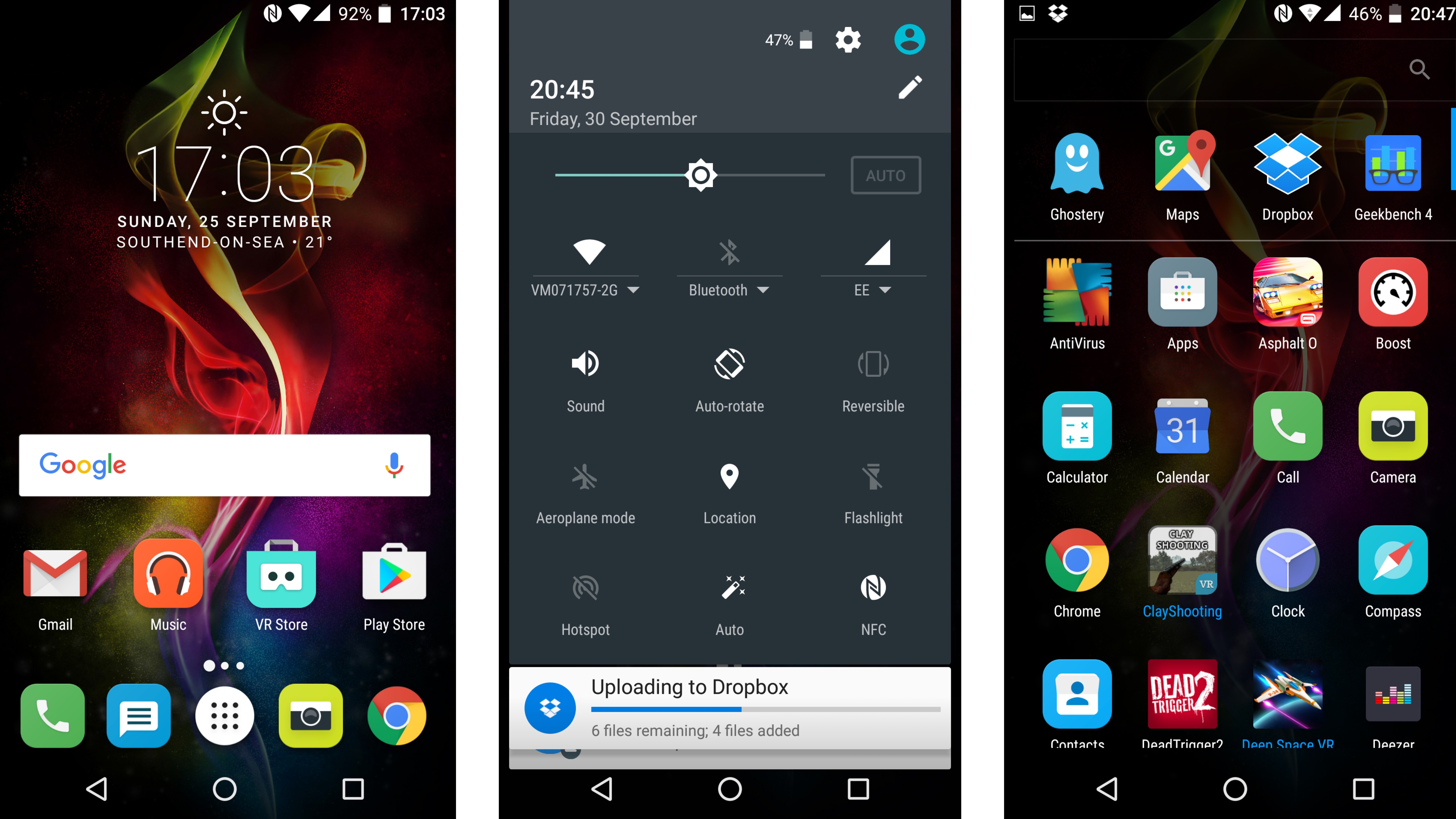
Plus, it’s just nice to use. Flicking through the Idol 4’s home screens feels familiar, comfortable. Android 6.0’s drop-down notification menu also continues to be one of the best around, so we’re gratified to see that Alcatel has left well alone.
One thing it’s decided to mess with is the lock screen, which now has a bunch of shortcuts stuck towards the bottom of the screen to jump to such random things as recent calls, Shazam, Yahoo search (yes, really) and the timer. You can customize these with other functions, but it all feels a little stuck-on.
There’s a small amount of additional software when you first boot up the Alcatel Idol 4, but most of it is understandable. There are a couple of VR-focused apps, as you might expect.
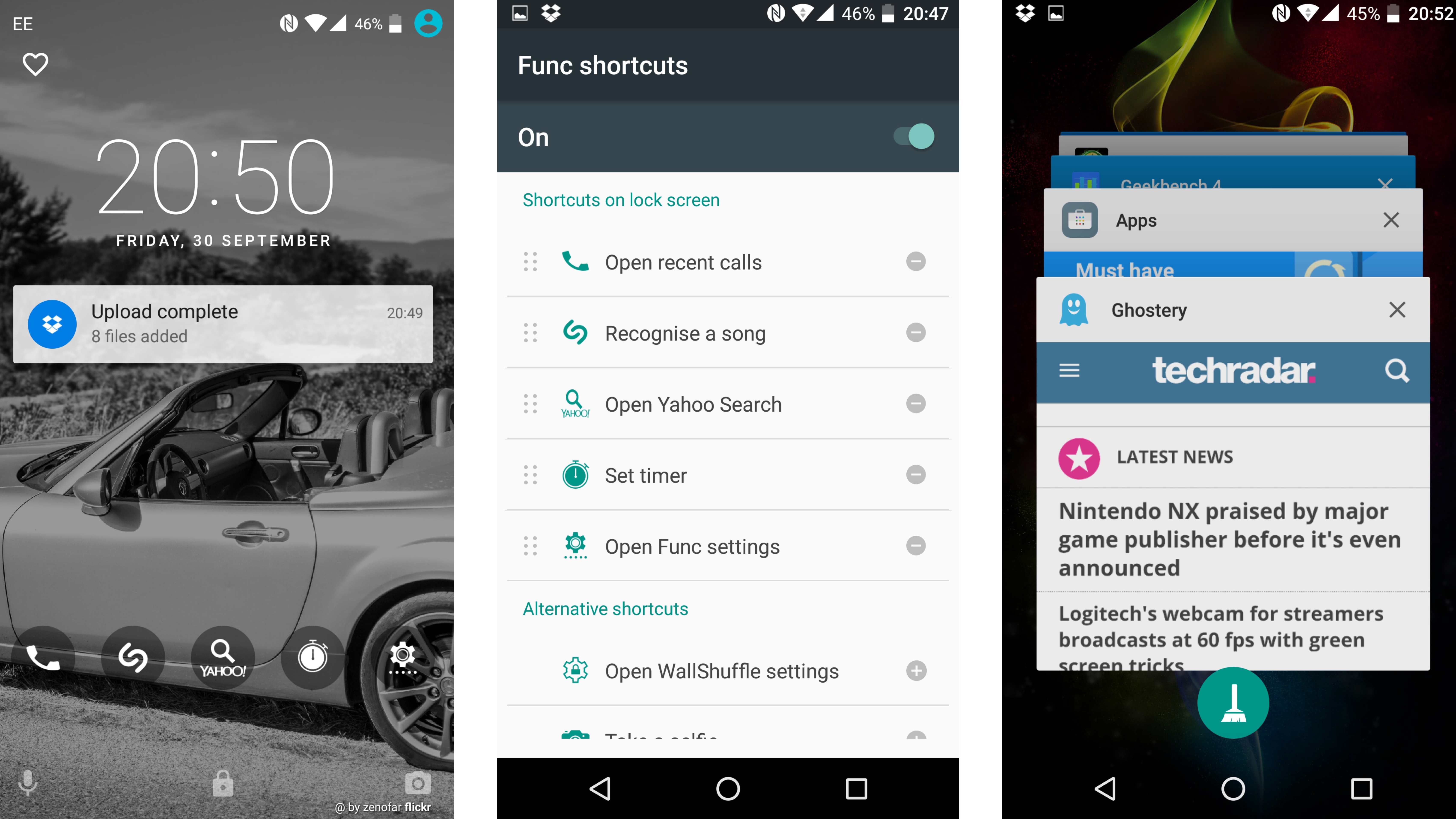
One is a decent VR Launcher, that lets you access any VR content downloaded onto the device through the headset itself. It’s basic, but it works well enough.
You also get a VR Store app icon, which takes you directly to the appropriate area of the Google Play Store, while the Littlstar app is a gateway to 360 video content.
Less welcome, but kind of understandable, is the inclusion of all of the main social network apps - Facebook, Instagram, Twitter, and Facebook Messenger.
In terms of outright bloatware, there’s the likes of Alcatel’s own OneTouch Games app - an utterly pointless additional app store - and the TiZR lifecasting app for broadcasting live feeds to your friends.
You also get Fyuse, which lets you create brief 3D video snippets, some Gameloft stuff, and the music streaming service Deezer. None of this stuff can be uninstalled, which is annoying.
Movies, music and gaming
- Fine sound provision
- Decent gaming performance despite mediocre CPU
The Alcatel Idol 4 is surprisingly well set-up as a media player. Its 5.2-inch 1080p display might not be the largest or sharpest, but it’s more than up to the task of streaming HD video content and games.
You don’t get a dedicated app to play your own video content, though. This is taken care of by the generic Gallery app, or through Google Photos. Interestingly, the former allows you to trim your video, which you don’t see in every pre-installed video-playing app.
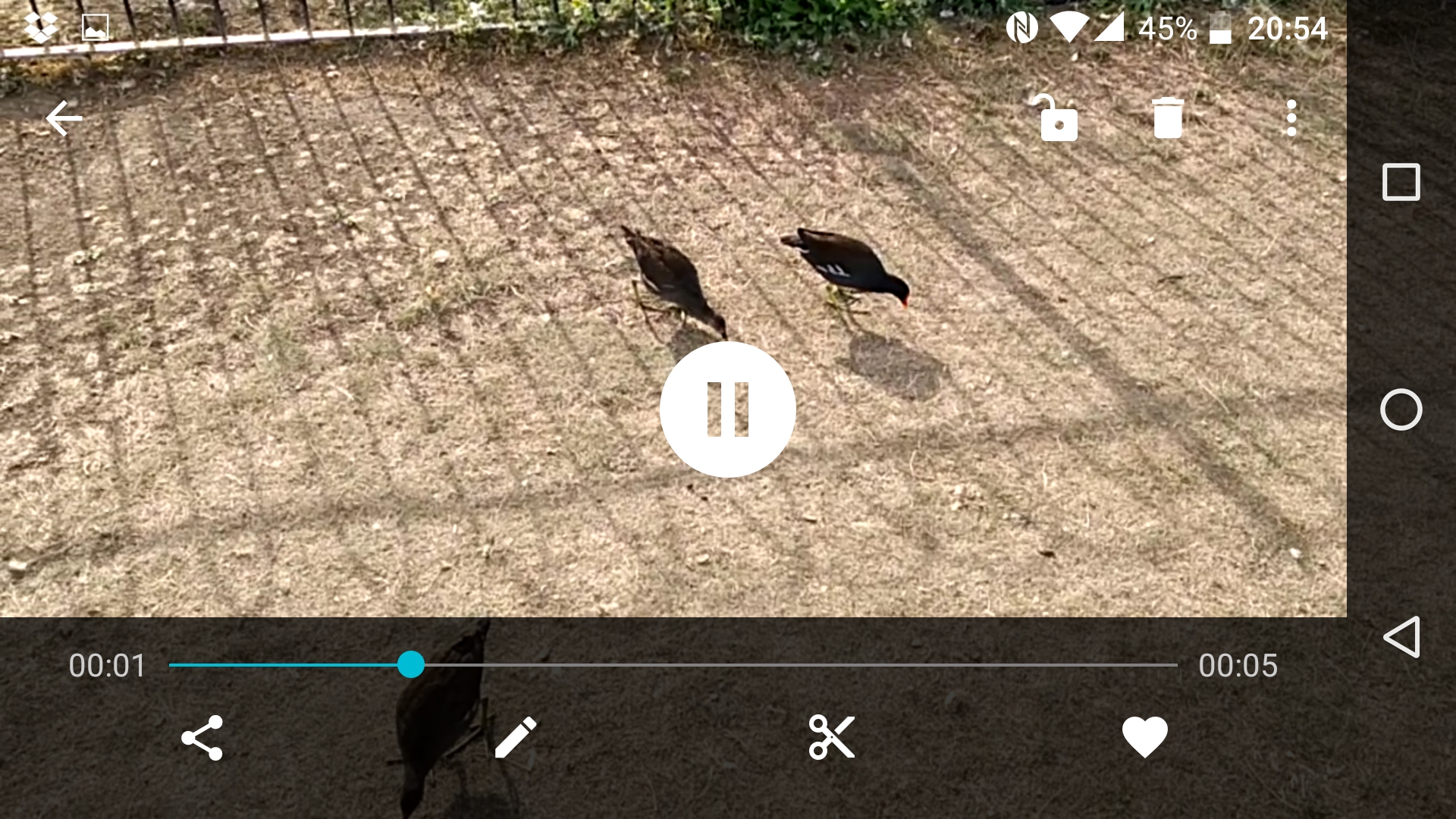
Meanwhile, those stereo speakers will do justice to such visual content, and the phone’s unusual omnidirectional sound output abilities will be music to the ears of those who like to crank up their tunes in public.
Of course, that sound will be lacking in bass and genuine depth, but people who listen to music in this way can’t be all that concerned about such things, can they?
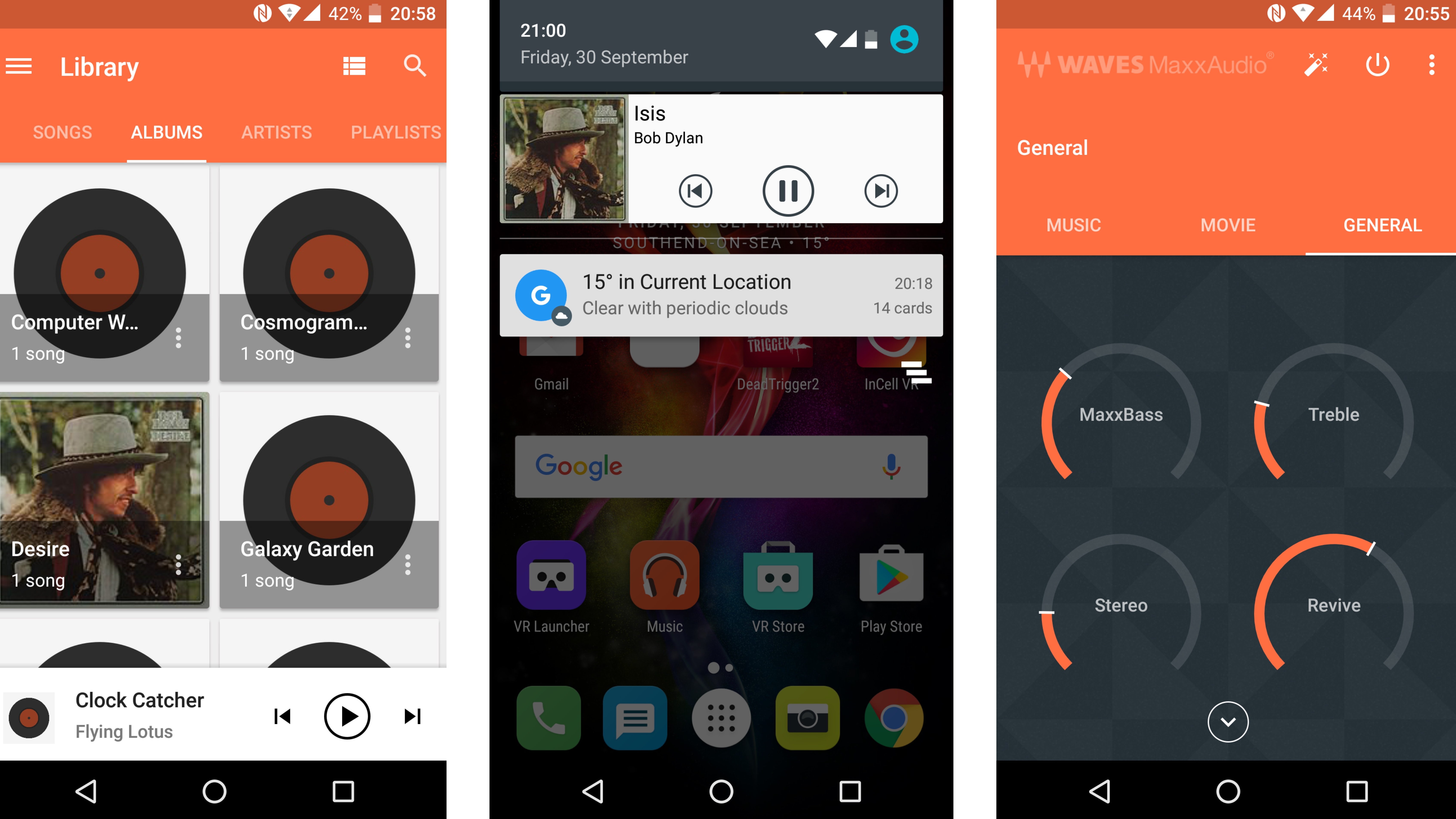
For the more serious audio head, there are some interesting options here. The Waves MaxxAudio app enables you to tweak the levels to your liking for Bass, Treble and the like. These can be set to different levels for music, movies, and general usage too.
In terms of media storage, you’ll want to invest in a microSD card pretty promptly, as there’s a scant 16GB of internal storage. That’s not bad for a phone of this price. The Bush Spira E3X offers 64GB, but that’s a bit of an outlier in storage terms.
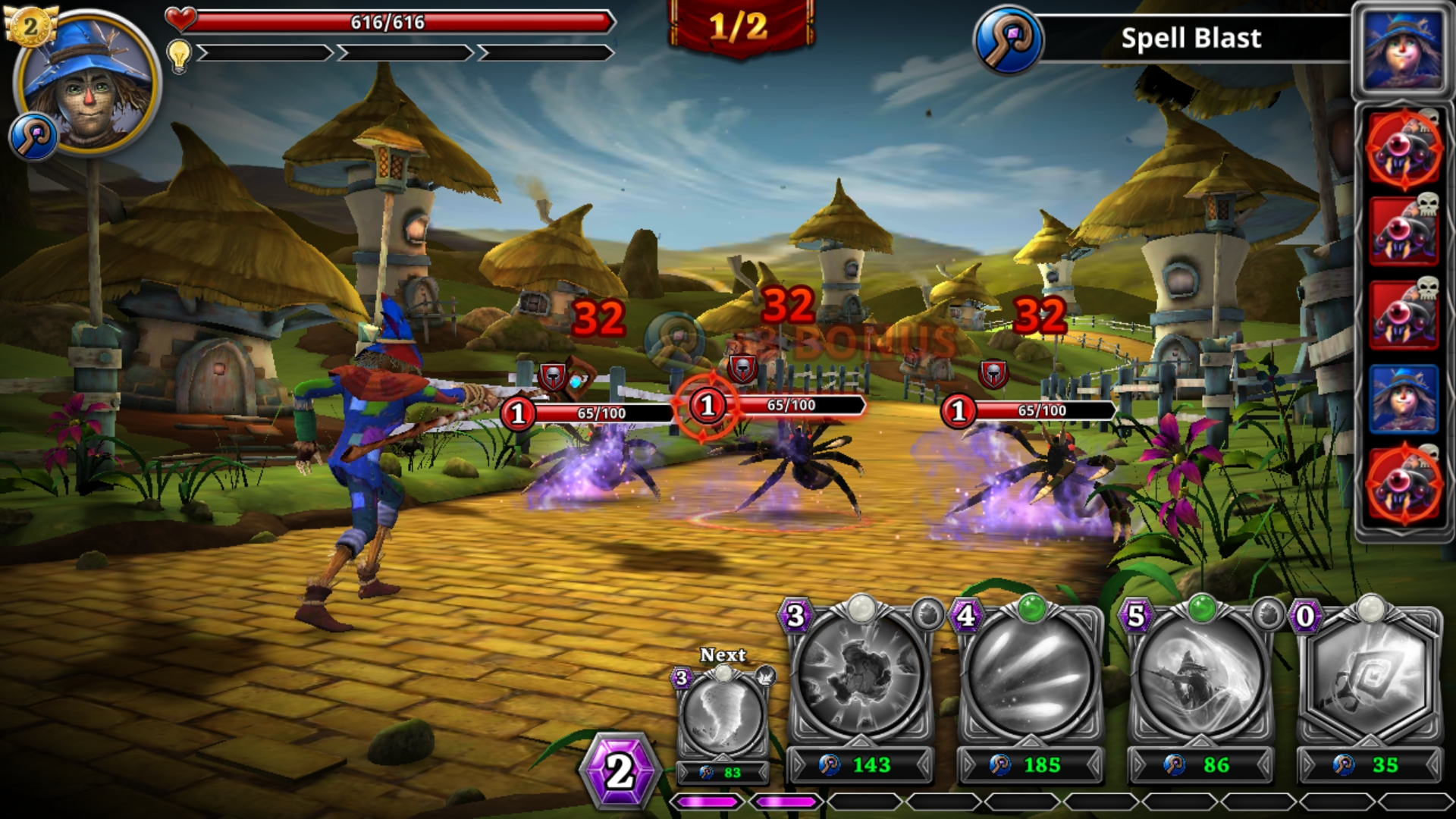
Alcatel’s phone isn’t what you’d call a gaming powerhouse, but it shifts along well enough. We loaded up Oz: Broken Kingdom, which is one of the latest visual showcase games to hit the Google Play Store (Apple even used it to show off the iPhone 7).
It didn’t exactly run with all of the whizzy effects of the iOS version, and we could detect the occasional stutter, but it still looked and played just great (if you like that sort of thing). Perpetual test favourite Dead Trigger 2 also ran well on high settings.
Specs and benchmark performance
- Decent Snapdragon CPU for the money
- Competent, but not class-leading, performance
You won’t be able to fault the Alcatel Idol 4 for performance. Not for less than $250/£200/AU$330, at any rate.
It runs on the same Snapdragon 617 CPU that you’ll find in the highly-regarded Moto G4. This is a lower-mid-range chip, so you shouldn’t expect wonders from it, but it runs everything more than competently.
That’s no doubt helped by the fact that the Idol 4’s CPU is backed up by 3GB of RAM, which is 50% more than the Moto G4.
Despite this apparent advantage, though, the Idol 4 didn’t perform as well as the Moto G4 in benchmark tests. The Geekbench 4 test yielded an average multicore score of 2076 for the Alcatel, while the Motorola scored 3104. That’s quite a difference.
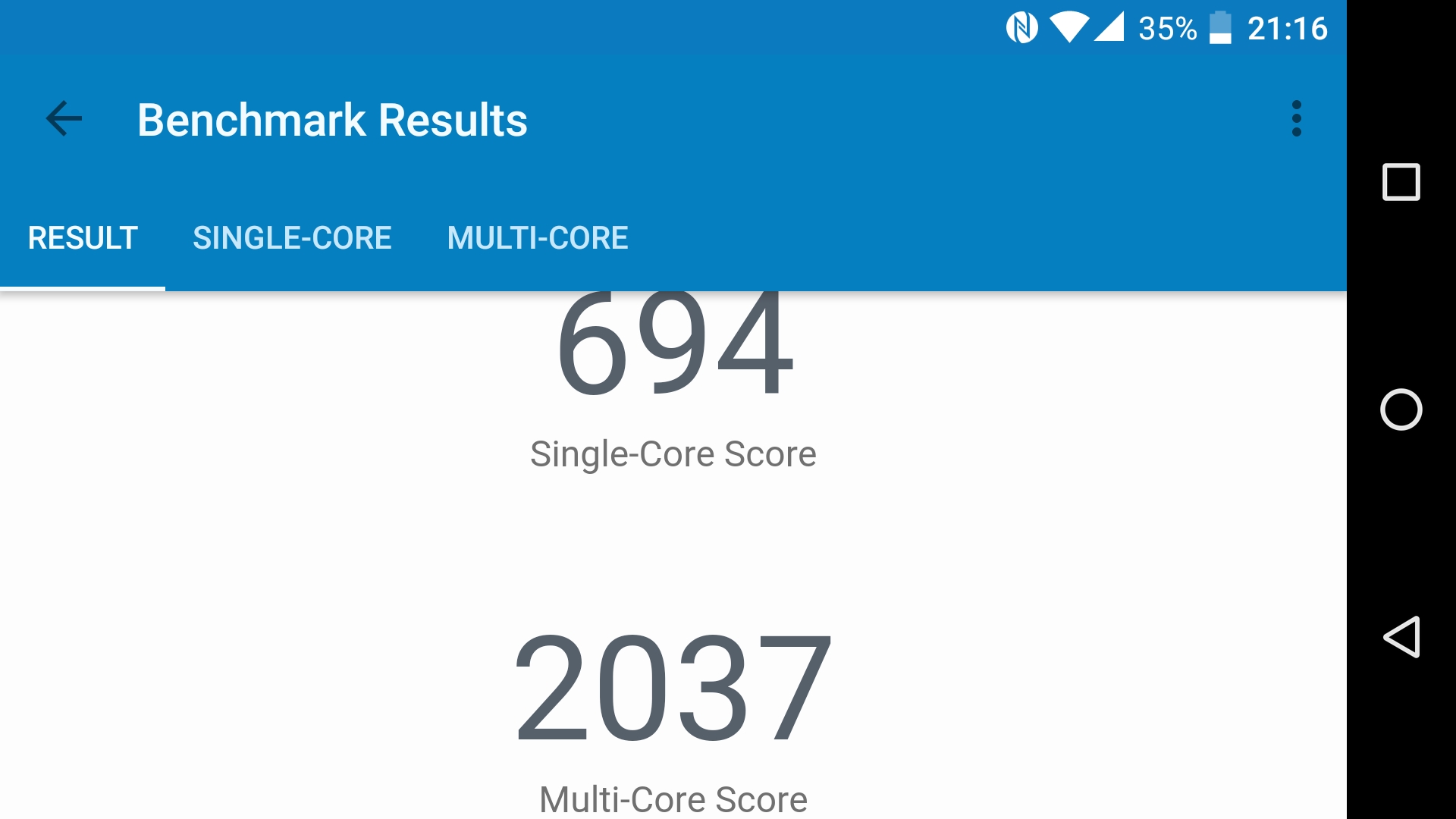
It’s also a good 800 short of the Bush Spira E3X, which is another budget smartphone that’s been making a splash of late.
As we mentioned in the previous section, though, the Idol 4 performs well with some pretty demanding 3D games. The Snapdragon 617 is more than up to the task.
More importantly for a phone of this kind, it handles general day to day tasks just fine. Home screen menus animate smoothly, and you’re only likely to notice the slight delay in apps booting up if you’re coming from a top-end phone.
In the same way, the camera takes a split second to boot up, but it’s not what we’d call slow by any means.
Current page: What's it like to use?
Prev Page Introduction, key features and design Next Page Battery life and camera